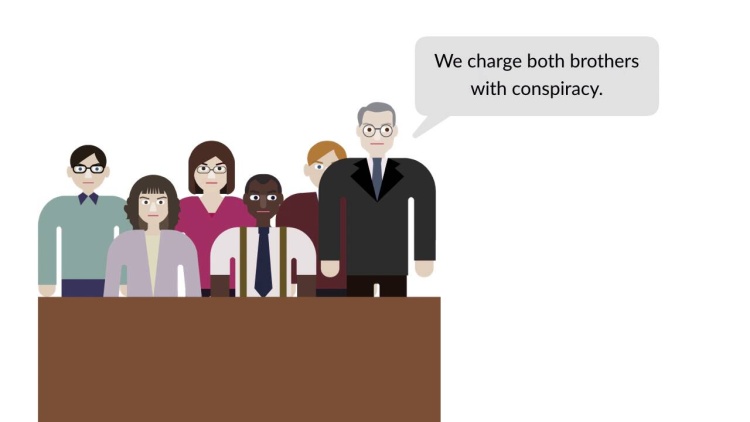Pinkerton v. United States
United States Supreme Court
328 U.S. 640, 66 S. Ct. 1180, 90 L. Ed. 1489 (1946)
- Written by Craig Conway, LLM
Facts
Walter and Daniel Pinkerton (defendants) were brothers who lived a short distance from each other on Daniel’s farm. The brothers were indicted for various violations of the Internal Revenue Code involving the unlawful possession, transportation, and sale of whiskey. The proof presented at trial demonstrated that Daniel and Walter had agreed to commit the crimes, but the government's evidence demonstrated that it was Walter alone who committed the substantive offenses without any assistance from Daniel. The court instructed the jury that Daniel could be convicted of the substantive offenses committed by Walter if Walter did them in furtherance of the conspiracy. The jury found Walter guilty on nine of the substantive counts and on the conspiracy count, and the jury found Daniel guilty on six of the substantive counts and on the conspiracy count. Each brother was fined and sentenced to terms of imprisonment. Walter and Daniel appealed, and their convictions were affirmed by the circuit court of appeals. The United States Supreme Court granted certiorari to review.
Rule of Law
Issue
Holding and Reasoning (Douglas, J.)
Dissent (Rutledge, J.)
What to do next…
Here's why 904,000 law students have relied on our case briefs:
- Written by law professors and practitioners, not other law students. 47,100 briefs, keyed to 995 casebooks. Top-notch customer support.
- The right amount of information, includes the facts, issues, rule of law, holding and reasoning, and any concurrences and dissents.
- Access in your classes, works on your mobile and tablet. Massive library of related video lessons and high quality multiple-choice questions.
- Easy to use, uniform format for every case brief. Written in plain English, not in legalese. Our briefs summarize and simplify; they don’t just repeat the court’s language.







